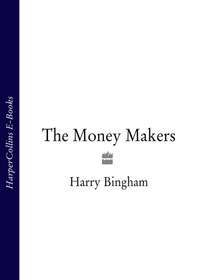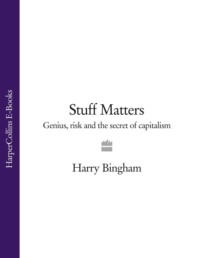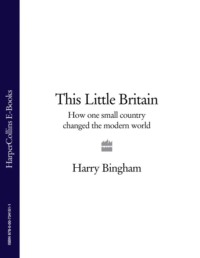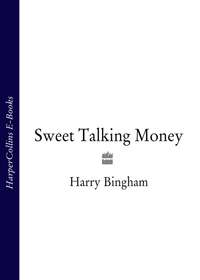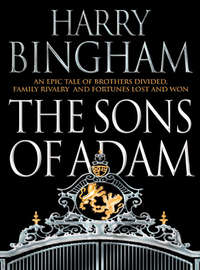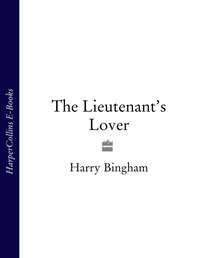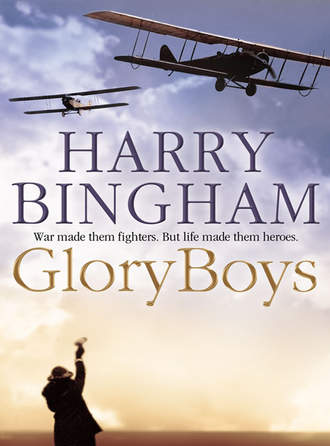
Полная версия
Glory Boys
‘I race her anywhere I can. The Arberry Cup once. The Burlington Medal. The Conway.’
There was a tiny flicker around her eyes when she named the last race. The flicker jogged a memory for Abe. He didn’t follow aviation gossip much, but he’d raced a little right after the war and had kept an interest in the major events. Her name, Hamilton, rang a bell…
‘The Conway? Hold on, you didn’t just fly in that.’
The flicker transferred from eyes to mouth, where it broke out into a smile. ‘Last year. Bertie Acosta had to drop out with engine trouble. I was able to take advantage.’
Abe smiled and shook his head. ‘No, Pen, a win’s a win. Nothing to do with another guy’s engine. Any case, the Conway’s the only one to win, right?’
She returned his smile. The Conway Cup had been inaugurated in September 1920. The first name engraved on the silverware was ‘Captain A. Rockwell.’
They laughed together. Their eyes touched and didn’t move away. The moment didn’t last long, but it lasted long enough for them both to feel something. Something shared, something mutual.
Abe held Pen’s gaze a moment longer, then felt suddenly uncomfortable. He stood up abruptly and went to make coffee, suddenly angry at his spartan accommodation. Almost deliberately, he made the coffee too strong, too gritty. He made it so nobody could possibly like it, probably not even drink it. Pen attempted more conversation, but Abe had closed up. Some women would have needed to talk into the vacuum, but not Pen. Quietness didn’t bother her, nor the coffee. She seemed relaxed. But time was running by. She would need to find accommodation in town. Abe offered the name of a couple of hotels that weren’t too dear. Pen took the information like she didn’t need it, but was too polite to say so.
‘I’ll send a truck,’ she said.
‘Huh?’
‘A truck. For the plane.’
Abe was puzzled. ‘Why?’
‘You said there was a problem with distributing something. The blocks? I thought…’
Abe was annoyed again, but tried not to show it. ‘Pen, the blocks need cleaning, nothing else. It’ll take twenty minutes at the outside.’
‘Oh.’ There was a pause. ‘I guess I ought to know that.’
‘I can show you how if you want.’
She hesitated. ‘I…’
‘Yes?’
‘Captain, I can fly ’em, I can’t fix ’em. I’m not about to try.’
Abe’s annoyance fluctuated uncertainly. On the one hand, her attitude was something he hated. On the other hand, there was something amazingly uncomplicated about her. And she could fly. She could certainly fly.
‘Listen,’ he said, ‘I’ve been wanting the City to move that damn telegraph wire for some time. I’ll call ’em. Tell ’em they almost got themselves a fatal accident. If they don’t move the wire, then I will. I’ll fly your plane back for you. Just let me know where to bring her.’
‘Oh, no, I couldn’t ask you to do that. If you tell me when the wire’s gone, I can come by and –’
‘Pen, I hope you’re not going to stop me flying her.’
‘You want to?’
‘Wouldn’t you?’
She grinned. When she wasn’t smiling, her face was withdrawn, quiet, thoughtful. It was the sort of face you could easily overlook, glance at and not properly notice. But when she smiled, she changed. Everything in her face became open and welcoming. When she smiled, her face called out to you like a bonfire of straw on an autumn day. She put a hand inside a shirt pocket and pulled out a simple white calling card. It bore her name and an address in South Carolina.
‘Thanks,’ she said, and walked away.
24
Willard waved goodbye and watched his guests go volubly down the hall. They’d enjoyed martinis with Willard, now were going on to the Algonquin for dinner and would be off to a jazz club in Greenwich Village before eventually rolling into bed.
Not Willard.
The pressure of work never let up. Willard spent his day chasing shipments, checking freight manifests, sending confirmations, arranging fund transfers. He needed the evenings to catch up with the days. Every time he felt he was getting on top of things, Annie would hit him with a stack of new files, crammed with deadlines and vicious complications.
But it wasn’t only that. Willard’s friends were big-drinking, free-spending. They had no idea of Willard’s impending poverty. Willard still had a little money, but it was running out fast and he had already borrowed two thousand bucks from Lucinda, his eldest sister. An evening spent working alone was a cheap one at least.
But that was small consolation. Because, so far, twelve weeks in, all his hard work had been for nothing. The loan wasn’t getting smaller. How could it? On Willard’s first day, Powell had said, ‘If you are ever to pay it off, it will be through your ability to earn exceptional returns on assets entrusted to you by the firm.’ But the company never entrusted him with money. Not a dollar. Powell hardly seemed to remember he still existed. Willard felt locked in a cell whose key had long since been thrown away.
The corridor fell silent. Willard went back into his apartment.
He took some cold chicken from the refrigerator and ate it in front of the open door, letting the clear, precise light fall in a block across the white tiled floor. A burr of traffic from Madison Avenue rolled down the canyon of East 60th Street and in through Willard’s kitchen window. He drank a glass of milk, rinsed it, and decided to clear his head with a shower before resuming work. He walked through to his bedroom and began to undress. He was sitting there, untying his shoe laces, when he heard the metallic click of a latch. His latch. For a moment there was silence, then the sound of feet moving quietly over the carpeted floor.
Willard eased his shoes off, then crept noiselessly to the bedroom door. There were more footsteps and the sound of a chair being moved. At his feet, there was a heavy brass weight used for a doorstop. Willard picked it up and hefted it. It would be a clumsy but effective weapon. He put his hand to the door and jerked it open.
There, in the middle of his living room, was Willard’s intruder, caught in the act.
His intruder was slim, pretty, stylishly dressed in a knee-length low-waisted blue evening gown in an ultra-fashionable artificial silk. On her face was a look of total surprise. Willard’s face was the same.
He was first to recover.
‘Good evening,’ he said.
The woman let go of the chair and swallowed. Her eyes fluttered quickly all over Willard, trying to assess the nature of the threat he presented. She must have seen something which calmed her down a little. ‘Good evening,’ she responded gravely.
Willard showed her his brass doorstop. ‘I picked this up to hit you with, in case I needed to. Do you think I’m going to need to?’
A smile plucked at the corners of the woman’s mouth. ‘Probably not, but you’d be wise to keep it handy.’
Willard set the weight down on a side table. ‘I’m not quite certain of the correct etiquette with burglars, so you’ll have to forgive me if I get it wrong – but would you like a drink?’
‘I think your manners are simply perfect. And yes, burglars always like to be offered a drink.’
‘What can I get you?’
There was a moment’s awkward pause. The awkwardness arose not because of their peculiar situation but because of Prohibition. Nearly everybody drank alcohol – but not absolutely everyone. It was still an illegal substance and it could be awkward to ask for it from somebody you’d never met before. Willard recognised the familiar embarrassment and said, ‘I intend to have a large glass of brandy. If I do have to batter you, I should like to be well primed for the job.’
‘And if I’m to be battered, I’d certainly like some brandy first.’
Willard tapped his bare chest (pleased that his intruder should have had the chance to see it). ‘I was just about to have a shower when you began burgling me. If you’ll excuse me…’
He went back to his bedroom, and dressed quickly in dinner jacket and tie. When he emerged, his burglar was politely standing by a bookshelf, pretending to be interested in the books. Willard poured them drinks. His burglar was medium-height, hair of dark gold, dove grey eyes and a pretty, darting smile. Willard felt the quick frisson of attraction.
‘Tell me, do you burglarise places professionally or is it more of a recreational activity?’
She pulled an apologetic face. ‘I’m terribly sorry. I thought the apartment was empty. There were some things here that someone I know had left behind. I was passing. I thought I’d just pop in and take a look for them.’ She dangled a key in the air. ‘I guess you should have this really.’ She tossed the key over.
‘You lived here before me? I thought…’
‘Not exactly.’ She sighed, and Willard saw something else in her face: something grim and unhappy. ‘The apartment was occupied by my sister’s fiancé, Arthur Martin. It’s my sister’s key.’
‘I’m so sorry, I don’t know your name. I’m Willard Thornton, by the way.’
‘Rosalind Sherston. My sister’s name is Susan. It would have been a little bit less embarrassing if she had come, but she was too upset, what with everything.’
‘I do understand. I’m at Powell Lambert myself, of course. I never met Mr Martin, but I’ve heard a lot about him. Only good things, naturally.’ This was quite untrue, incidentally. Nobody at Powell Lambert ever seemed to mention the name. ‘What a terrible shock it must have been.’
‘You never met him?’
‘I’m still very new. I’ve only been at the bank a few weeks.’
‘A few? How few?’
Sherston’s voice went suddenly weak, though she didn’t at all strike Willard as the weak-voiced sort of woman. Willard realised that she was shocked to find the dead man’s apartment so quickly reoccupied. He told her when he’d joined, but adjusted the date by two weeks, so the bank’s callousness seemed less extreme.
‘I see.’ Sherston gulped her brandy, suddenly anxious to be off. The mood, which had been sunny, had darkèned for no reason Willard could explain. ‘Thank you for not battering me. You would have been within your rights.’
Willard shrugged apologetically and pointed to the carpet which was quite new and pale cream. ‘It’s not the battering, it’s the cleaning up.’
She got up to go. ‘You’ve been very sweet.’
‘Wait a moment,’ said Willard, anxious to extend her visit. ‘Your sister’s things. I haven’t come across anything, but if you know where they might be you’re welcome to take a look.’
Rosalind hesitated. The chair was still out where she’d left it. Willard remembered how Rosalind had been dragging it when he’d burst in on her.
‘The cupboard? Did your sister mention that cupboard?’
Again that momentary hesitation. Then a nod. ‘Yes. It was the cupboard she mentioned.’
The cupboard in question was a large built-in affair, flush-fitted to the alcove next to the doorway. The bottom half was mostly full of bed and table linens. The upper half was full of Willard’s collection of flying and movie memorabilia. He wasn’t at all unhappy to have to root through it with Rosalind watching. He began pulling stuff out: movie posters, photographs, a medal, a leather flying helmet scored along its outer edge by a German bullet.
‘Oh, Willard Thornton,’ she said. ‘Gosh! Aren’t you …? Of course, you are. Silly me. I suppose I should have recognised you.’
‘Not at all, not at all.’
Willard knew for a fact that the cupboard had been bare on his arrival, but wasn’t going to let that stop him emptying it under Rosalind’s inspection. Selecting carefully, but appearing casual, he made sure that the choicest artefacts ended up in the pile closest to Rosalind: a condensed history in objects of his life as he liked to think of it. She picked up a model Nieuport, made in silver, a gift from his father to mark Willard’s first aerial victory. ‘They seem so fragile.’
‘Not really,’ he answered, with studied casualness. ‘Good plane the Nieuport. Wing struts had a tendency to come apart in a dive, but it wasn’t a danger if you knew what you were doing.’
‘Do you mind me looking?’
‘Not at all. It’s junk, really. I ought to throw it away.’ She shook her head.
The cupboard was obviously empty. Willard swept the back with his hand.
‘Your sister’s things aren’t here, but I’ll keep an eye out. What should I be looking for?’
‘Oh… I’m not sure. Some papers, I think. It doesn’t matter. I shouldn’t have come. Sorry.’ She opened the apartment door. ‘Goodbye. Thank you.’
‘Wait!’
Rosalind stopped.
‘If I find anything, how do I get in touch with you?’
‘Oh, yes, of course. You can call me.’ She gave him a Manhattan phone number. ‘But don’t worry about it. Really.’
Her eyes flicked around the apartment, back to the cupboard, then to the mess on the floor.
‘And now I’ve put you out. I’m so sorry. Thank you. Goodbye.’
25
The shadow of Poll’s upper wing shifted slowly with the sun. At the moment, most of the shadow fell on the ground, but there was still a long bar of shade lying down the trailing edge of the lower wing. Abe lay with a cigarette in his mouth, his back warm against the fuselage. The Cuban boy who brought the mailbag for Miami was late again. Abe decided that, bag or no bag, he’d leave as soon as the shadow of the upper wing had left the lower wing completely.
The sun slid slowly down the sky. The shadow moved. Abe finished his cigarette and stubbed it out.
Another minute passed. The shadow had almost completely shifted now. Abe got up, ready to leave, when a big black American car drew up outside the airfield gates. A dark-suited man climbed out, leaving one man at the wheel and a second one in the passenger seat behind. The man who got out was bulky, jowly, tough, but also friendly. Abe recognised him as an occasional passenger with the Marion bootleggers – and their obvious superior. The big man came over.
‘You Rockwell?’
Abe nodded.
‘Hi. Bob Mason.’ The man pointed at his chest, as though he might have meant someone else.
Abe shrugged.
‘You going back to Miami?’
‘Uh-huh.’
‘I need a ride.’
Abe shrugged again.
I’ll pay. How much d’you charge?’
‘Can’t. I’m full. Sorry.’
‘Full? With a packet of letters?’ Mason snorted. ‘Say fifty bucks? I never taken a plane ride before.’
‘I thought you went by boat. You’d be more comfortable.’
‘Fool sailors left the choke wide open. Engine flooded. In this heat, too.’
Abe shrugged. Since he’d swum out to the boat that lunch-time and opened the choke himself, the news wasn’t a big surprise. He’d also undone the nut holding the propeller blade, so if the Marion folk had got the engine started, it would have lost its blade within seconds.
‘Too bad.’
Just then the Cuban kid came at a slow trot with the mailbag. Abe took the bag and buckled it behind his seat in the rear cockpit. The American came closer, tilting his head up to speak.
‘Fifty bucks. We got a deal, right? Where do I get in? Here?’ He made as if to climb into the front cockpit.
‘Hey! Out of there. I’m full, I told you. I’m not some kind of railroad service.’
Mason stopped where he was, half-in, half-out of the cockpit. He held Abe’s gaze square on.
‘A hundred bucks.’
‘I’m full. That’s the last time I’m telling you.’ Abe checked his instruments, before jumping out of the plane to swing the propeller a couple of times. On a cold day, it could take a few turns to bring enough fuel into the piston heads. But in the heat, Abe could tell by the smell that the pistons were already primed. He walked back to the cockpit.
‘Bullshit, that’s bullshit.’
Abe shrugged. ‘My machine, my route.’
He reached inside his cockpit, flipped the ignition, and set the throttle low enough that it would keep the engine turning without sending Poll skittering out across the field. Then he went back to the propellers, ready to spin the blades into action.
Mason let Abe pass him, then said in the same low voice, ‘Fuck you.’ He picked a hundred dollars from his wallet and threw them into the rear cockpit. Then he grasped the edge of the front cockpit with both hands and jumped up, before swinging his legs down and into the plane. A grimy blue curtain would have blocked his view of anything lying forward from the seat. Expecting empty space, he moved too fast and barked out loud in pain as his feet struck something hard and solid. He swore loudly, then grabbed at the curtain to pull it aside.
And saw it. Six cases of booze, Gordon’s Gin still in the original boxes, strapped tight against Poll’s wood and fabric hull.
Mason stared – stared – then began to roar with laughter.
‘Full! Ha! I’ll say you are. That’s a sweet little business you got yourself there.’
‘Right. So as you see, I got no space for you. Now scram.’
Mason shook his head. His eyes smiled but there was an unruffled confidence in his manner which hinted at something a whole lot tougher. ‘I’ll squeeze up. I promise not to snitch a drink on the way.’
‘It’s not a question of squeezing, it’s a question of weight. The plane won’t take off overloaded.’
‘Then lose the booze.’
‘I’d sooner lose you.’
Mason paused. His manner was still very easy, very calm. He looked inside the curtain and counted the cases. ‘Six cases. And twenty, twenty-five bucks turn on each one. I was underpaying. One fifty.’ He counted out another fifty bucks and handed them down to Abe, who didn’t reach to take them.
‘Sorry, pal. I’m not in the passenger business.’
‘My men will get you unloaded.’
Mason glanced over at the car which had brought him and made a gesture. Two men stepped out, not exactly threatening, but not exactly meek either. Abe watched them come.
‘Where do you store it?’ said Mason.
‘If I take you this time, it’s the last time, OK? I got people who rely on me.’
‘I get it.’
‘And it’s two hundred.’
‘OK.’
Abe spun his reluctance out another second or two, before pointing at the little locked shed, where he kept the bits and pieces he needed to service Poll. ‘In there. And your guys had better break a sweat, unless you want to try a landing by moonlight.’
‘OK.’
Mason handed over a further fifty dollars, gave brief, precise instructions to his men, then chuckled to himself as the booze was unloaded. And it was true: ever since beginning the mail flight, Abe had been transporting six cases of alcohol a flight, every flight. He bought the stuff from a wholesaler in Havana. He sold the stuff to a poxy little Miami bootlegger, named De Freitas. The booze came in wooden cases, nailed shut and sealed with the manufacturer’s mark. To begin with De Freitas hadn’t believed the stuff was unadulterated, but as time had gone by, he’d changed his mind. De Freitas paid good prices. Abe’s costs, gasoline mostly, were low. Each and every trip he cleared around a hundred bucks’ profit.
Mason supervised his men, but didn’t help. He jigged up and down, enjoying himself.
‘You got Gordon’s on the box. I like that. Booze you can trust.’
Abe said nothing.
‘You ain’t worried about the good folks from customs?’
Abe jerked his thumb at Poll’s fuselage, with its stencilled mail logo. ‘Interference with the mails. It’s a federal crime. Besides, why would Uncle Sam want to stop his own airplanes?’
Mason stared at the logo an instant, transfixed by the sight. Then his face creased into a bellow of laughter. ‘Ha! You got it figured out there, pal! Good ol’ Uncle Sam, huh? Looks after his own, hey?’ He laughed some more and shared the joke with his two pals, who had got the last case unloaded. They laughed too, but were sweating too hard to laugh loudly.
‘OK, hurry it up,’ said Abe tetchily. ‘You want to go to the can, go now. Otherwise, get in. There’s a helmet and goggles behind the seat. Put ’em on. Keep ’em on. Sit still. Don’t touch anything. Miami in three hours. Got it?’
Mason nodded, still chuckling, and complied. Abe got Poll started, and bumped across the airfield until he was downwind of the sea breeze. Then he opened the throttle and let her roar into flight. Abe pushed her upwards at two hundred feet a minute, until he hit her ceiling, seven thousand feet or so. He kept her pushed up against the ceiling all the way to the Florida coast, raising the altitude as the fuel load lightened. Up at those heights, the air was icy, the cold multiplied by the hundred-mile-an-hour wind.
By the time Abe set Poll down in Miami, Mason was half blue with cold, his hands shaking, his face pinched and tight.
‘You have to fly her as high as that?’
‘Nope.’
‘Then why the hell did you?’
‘I run a business, but it’s not a passenger business. Next time take the boat.’
Mason left, heading off towards town, flexing his fingers to get them warm.
Abe watched him go. It was his first serious contact with the gangsters of Marion. But it wasn’t too late to quit. He was committed to nothing, he had promised less. Few people knew where he was, and no one knew what he was doing. Abe stood watching, ’til Mason had long passed out of sight. But the hesitation that had gripped him since the moment when a lanky storekeeper in Independence had asked him for help still gnawed inside. Should he fight or quit, stay or run?
He didn’t know. He still hadn’t made up his mind.
26
One Friday afternoon, Willard had had business with the bank’s archive on the twentieth floor. He’d deposited one file, collected another and was just about to leave, when he happened to see Leo McVeigh and Charlie Hughes through the glass-paned door. McVeigh had Hughes pushed up against the wall. Hughes was white, obviously terrified. McVeigh was standing too close, speaking intently, his big hands half-curled into fists.
Willard stared for a second, then banged the door open. McVeigh stepped back. Charlie Hughes put his hand to his face, checked his tie, began muttering nervous hellos. Willard already loathed McVeigh and was angry enough to welcome a confrontation.
‘Hello, McVeigh,’ he said icily, before turning to Hughes. ‘You all right, old chap? You’re looking rather blue.’
‘I’m fine, honestly, Will, please don’t worry.’
‘I do worry. You’re not looking at all well.’
‘Spot of tummy trouble. Maybe something I ate. I’ll be OK.’
‘Have you drunk some water?’
‘Water?’ Hughes repeated the word as though unfamiliar with the substance.
‘Water. You ought to drink something. Maybe go home and lie down.’
Hughes caught McVeigh with his eyes. He’s asking that bastard for permission, thought Willard angrily. McVeigh nodded slightly and stepped away.
‘Yes, good idea,’ said Hughes. ‘I’ll drink something. That should help.’
He made no move to come with Willard, as though still spellbound by McVeigh’s presence. The big one-time football player stood a pace or two back, kneading his hands and breathing silently through his mouth.
‘Good. I’ll walk you to the bathroom,’ said Willard firmly. He put a hand on Hughes’ shoulder and steered him away. In a deliberately loud voice – loud enough that McVeigh would be sure to hear it – he said, ‘You always feel free to come to me if you need help, anything at all.’
‘Yes, of course, thanks, Will-o.’
Feeling distaste for the man he’d just rescued, Willard turned and stared McVeigh straight in the face. For a second or two, their gazes locked. Hostility flickered in the air. Then Willard, pulling some of his Hollywood moves, curled his lip, turned on his heel, and stalked off.
Speaking about it later with Larry Ronson, Willard said, ‘I’d swear he was threatening Hughes. The poor chap looked white as a sheet.’
Ronson was sympathetic. ‘He’s an ugly sort, McVeigh. He’s never even attempted to join in with things. I mean, at least Hughes tries.’



